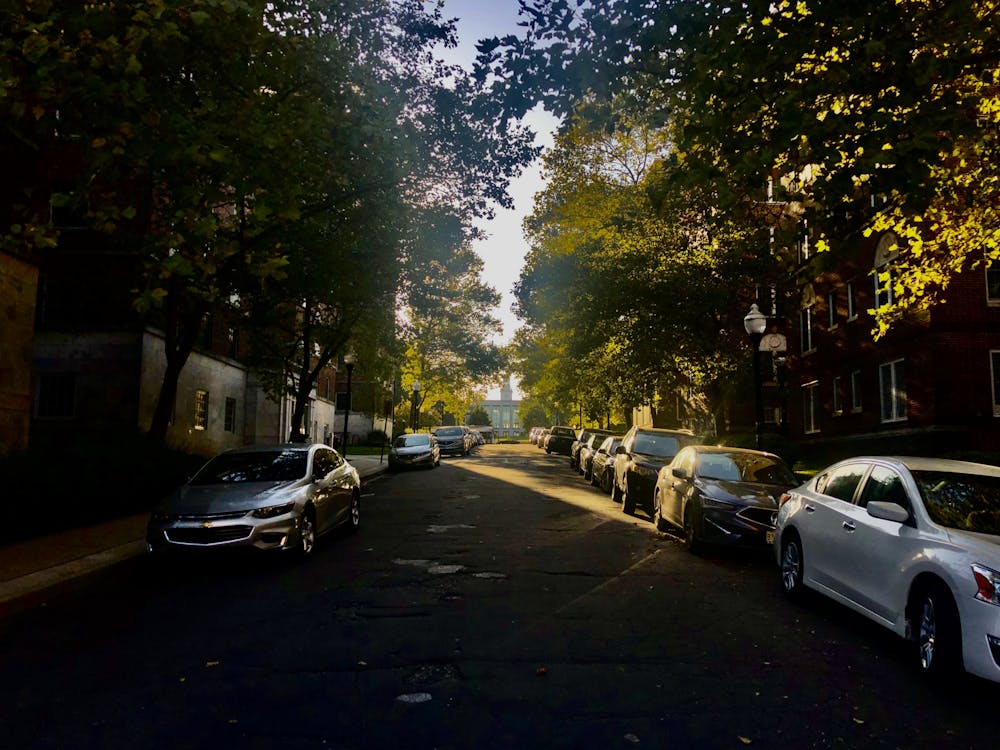The Committee on Student Elections announced the results of the Student Government Association (SGA) Freshman Class Council elections on Saturday, Sept. 26. Due to coronavirus (COVID-19) restrictions, candidates could only campaign virtually.
For the 2020-21 academic year, the freshman class president is Kobi Khong, and the freshman class senators are Raj Bhatt, Jenny Chen, Harvey McGuinness, Ireland Parrish, Elaina Regier and Benjamin Scherzer.
The freshman class elections drew a significant decrease in voter turnout, with 44% of the Class of 2024 voting compared to 56% of the Class of 2023. Four candidates ran for the presidency, while six senators were chosen from a field of 27.
Freshman Class President Kobi Khong, who won with 246 votes by a 40-point lead, believes that his involvement in online platforms, such as Discord and GroupMe, helped him with the election.
“We were a bunch of Hopkins-admitted kids stranded across everywhere. Out of necessity, we formed connections online that allowed us to get to know each other,” he said. “Those connections online and having that support really helped campaigning because there’s already that foundation of friendship.”
Other candidates felt that fostering relationships while campaigning virtually was a challenge.
Freshman Class Senator Ireland Parrish stated in an email to The News-Letter that while she was initially intimidated to reach out to students online, she adapted creative ways to do so.
“[Our campaign ticket] made a BuzzFeed personality quiz, which... allowed us to display our personalities in an engaging and funny way,” she wrote.
Candidates promised to address how various current events impact students in the class of 2024.
Freshman Class Senator Harvey McGuinness campaigned on increasing civic engagement among Hopkins students as the general election approaches. He explained that students need a consolidated location to find information about voting instead of parsing the various messages seen across other news and social sources.
“It’s one of those things where if you’re bombarded with it enough, it loses all meaning,” he said.
This fall, SGA has already been working with Hopkins Votes through its Commit to 100 percent campaign, which aims to get student organizations to register all of their eligible members to vote.
Freshman Class Senator Benjamin Scherzer intends to replicate the traditional college experiences that students were unable to get this year due to COVID-19.
“Something that is really important to me is emphasizing how much a lot of the college experience people are missing out on and just doing what we can to build those personal connections both virtually and, if possible, with safety precautions regionally in cities that have a decent number of Hopkins students,” he said.
The University, however, has banned all in-person academic and co-curricular events on- and off-campus. Students are prohibited from having informal gatherings of more than 10 people at this time.
Some candidates were also concerned with the relationship between students and the administration. This semester, the University has been criticized for its lack of clear communication over the fall reopening plan and financial aid decisions.
Khong hopes to reform how administrators interact with students.
“The biggest thing that our class had gripes with was the lack of transparency between administrators and us. We would get emails out of nowhere, we would be told things way too late,” he said. “Something I wanted to increase more was direct liaisons. There are things that happen that we don’t even know about.”
Freshman Class Senator Jenny Chen highlighted the need for the University to incorporate student input in its decision-making process.
“One of my main goals is to establish a more transparent communication channel between the administration and the student body,” she wrote. “I’ll achieve this by establishing a committee or selecting an individual who will sit in on meetings regarding large school decisions and make financial aid advisers more accessible by creating weekly meetings with them or having a particular location where all the updates can be shared.”
McGuinness observed that there also was some animosity toward SGA among freshmen, which he hoped to address.
“There is certainly a barrier felt between the freshman class and everyone else; there’s certainly an us and them mentality. SGA definitely needs to be more of a union for students,” he said. “There definitely needs to be more of a ‘We are fervently there for you’ where ‘you’ isn’t just the three-quarters of the class that made it to campus. ‘You’ is everyone.”
To this end, Parrish and Freshman Class Senator Regier wish to establish more caucuses within SGA that address the needs of minority groups.
Regier highlighted the need for SGA to strive for more diversity and awareness.
“There are and always will be groups that are underrepresented, including but not limited to racial minorities,” she wrote. “We can’t have an individual to represent every minority group, but, if we can’t, then we have to at least make it our mission to communicate with them to understand their viewpoints and represent them as best we can.”
Parrish expressed her desire to start a caucus for the queer community.
“While LGBTQIA representation has improved greatly over the years, there are still improvements to be made and concerns that are still ignored, and I want to help change this and start an LGBTQIA caucus for more direct representation,” Parrish wrote.
Regier emphasized the importance of receiving student input in implementing changes.
“Everybody is in a different situation, and we don’t necessarily know what those situations are. In person, everybody has access to the same resources, and you can learn a lot about how students are feeling just by being there, but this year we don’t have those same privileges,” she wrote. “Since there are no guarantees about what works and what doesn’t, it’s essential to provide a convenient place for feedback and to consider that feedback at every new step.”





